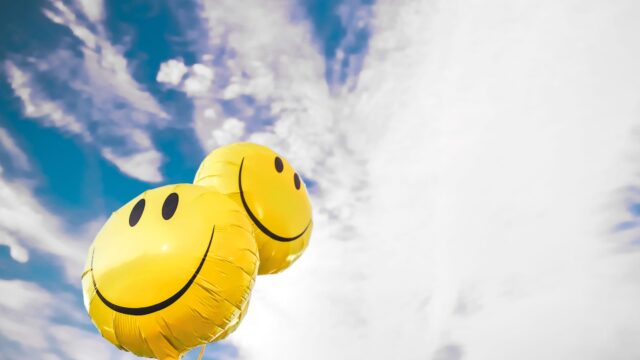Optimism, The Last Taboo

Only in America can positivity be thoughtcrime.
I clicked an advertorial by mistake this morning. It all makes sense now:
Friendship is meant to be a safe space—where we feel seen, supported, and accepted. But what happens when that support starts to feel a little… performative? When every vent session is met with “Look on the bright side!” or “At least it’s not worse!”—instead of real empathy?
That’s where toxic positivity comes in… the belief that no matter how difficult a situation is, people should maintain a positive mindset. While optimism has its benefits, constant insistence on “looking on the bright side” can invalidate genuine emotional experiences…
I laughed, but it turns out there’s a whole literature of “toxic positivity.” The Los Angeles Times after winter wildfires warned against “the dark side of brightsiding,” Fast Company offered instruction on “How to Stay Optimistic But Avoid Toxic Positivity,” and Health hinted that needle needs threading because excess upbeatitude might be a cancelable offense. An anonymous employee at Wayfarer Studios took actor/director Justin Baldoni to task in the Los Angeles Times, knocking his workplace demeanor: “It was constant positivity all the time. I would say toxic positivity.”
If you’re like me and feel more alienated from American society every day, this might be the reason. In a world where nothing is just a problem, everyone is Hitler, and the dumbest controversies are framed as ultimate showdowns of Good and Evil, optimism makes sense as the last taboo.
“Toxic positivity” sounds like a goofball leftist concoction because it was, originally. The term apparently first appeared in professor Jack (née Judith) Halberstam’s The Queer Art of Failure, which imagined disappointment and despair as correctives to heteronormative myths (I can hear the reader reaching for a power drill to jam in a temple) about the “power of positive thinking”! Psychology Today meanwhile found “toxic positivity” in the statement, “She’s family. You should love her no matter what,” and a 2022 study on the subject suggested the toxically positive comment “may come across as paternalistic or dismissive.” The gist of almost any academic essay on Toxic Optimism is that the world is too rife with injustice and incipient disaster to indulge hoping for the best. The person who shrugs off social horror (or worse, jokes about it) instead of running into the nearest cement wall is definitionally a member of Team Problematic.
I’m an absurdist by nature, which means I see life as horrible, repellent, tragic, and intolerable, but I wouldn’t trade it for anything. To paraphrase Woody Allen, the food is terrible — and such small portions! Once I’d have thought it impossible that this gentle form of optimism could upset anyone. Now, the notion that things might not be so bad is an anathema everywhere, even among well-fed, heavily accessorized Americans who’d fall to pieces if they had to use a Bangladeshi toilet even once. On the left, happiness-phobia has been obvious and hilarious for a while. Comedy is long dead (at a time like this, nothing can be “just funny”!), Hollywood still seems afraid to show people enjoying sex unless it’s appropriately transgressive, and even a Getty search for “optimism” suggests algorithmic terror of images of apolitical contentment:

Trumpworld Politics, though, have lately also become apocalyptic, relying on some of the same narratives of existential doom Democrats used (only Trump uses “won’t have a country anymore” instead of the e-word). The administration is full of people who rightly laughed at campus catastrophizing over the idea that “words are violence.” Now they’re deporting foreign bloggers (a hapless Australian, most recently) for the same reasons, in addition to throwing around maximalist terms like “insurrection” to fit policy directives, just as Democrats did. As Jeff Maurer notes, seeing these overnight switches is as cringe-inducing as watching white lefties who cried about Cultural Appropriation on Halloween suddenly appearing on TV everywhere with kaffiyehs sutured to their necks. The Trump administration will never reach the same level of crazy on this subject as their opponents, who spent years denouncing admirers of the I Have a Dream speech because aspirations to racial harmony are bad (or something). Still, they’re starting to develop some of the same bad habits.
Optimism has been a target of satirists forever, from Swift’s Modest Proposal (don’t let overpopulation and hunger get you down, when a little baby-eating solves both!) to Voltaire’s Dr. Pangloss, who proved under torture that we live in the best of all possible worlds. That character is sometimes annoying and often mockable, but toxic? The person who doesn’t want to consign anyone to hell for a voting choice, believes problems are fixable, and thinks a handful of happy moments still makes life worthwhile — we need more of those folks in America, not fewer. Why villainize them?
